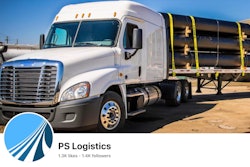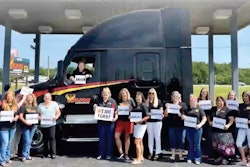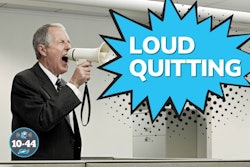Trucking is fraught with inefficiencies. For example, according to the American Trucking Associations, a truck driver loses about an hour of drive time every day just looking for parking, account for the loss of about $5,500 in annual compensation.
Inefficiencies baked into transportation cause drivers a lot of stress, and stress leads to dissatisfaction and, ultimately, to turnover.
CCJ, in partnership with Bestpass, will host a webinar with two top carriers sharing tips on how they've invested in drivers and it's led to keep drivers engaged and loyal using driver feedback, improving drivers’ efficiency and workflow, and innovative pay models.
This complimentary hour-long webinar, which will include a live Q&A with the panelists, will be held Thursday, Sept. 21 at 1 p.m. Central Time. Carriers can register here.
A recorded on-demand version will be made available to all registrants so those interested in the topic but unavailable the day and time of the live webinar are still encouraged to register.
Registrants will hear from:
Bruce Stockton, Wilson Logistics
Bruce Stockton serves as the Chief Operating Officer for Wilson Logistics. He joined Wilson full-time in 2021 as their VP of Fleet Services. With a 38 year history in transportation, he brings a vast amount of experience in running various aspects of the business, including Operations, Safety, Risk Management, Recruiting, Compliance, Maintenance, Asset Management, and Procurement. While serving in a lead management role for over twenty-five years at a fleet with over 10,000 pieces of equipment and assisting other fleets of all sizes over the most recent twelve years in his own consulting practice, Stockton manages the day-to-day operational excellence and proud safety culture in place and well established at Wilson.
Tomasz Jamroz, Roadrunner
Tomasz Jamroz is Head of Technology and Operations for Roadrunner and continues to drive the transformation of Roadrunner as the most tech-forward LTL carrier in the US. Roadrunner has emerged as the best operational and procedural LTL carrier under Tomasz's leadership. His responsibilities include Partner Relations, Driver Relations, Settlements, Claims and Data Governance. He specializes in applied quantitative and algorithmic modeling, innovation, and human-centric process and technology design to optimize operations and enable organizations, customer, and partner interactions. Tomasz has previously led several successful full life cycle technology transformations in Europe, North America and the Asia Pacific region in Artificial Intelligence, Big Data Platforms, Robotic Automation, Mobile, Platform Development, and major ERP, TMS, SCM, Control tower and CRM implementations. He graduated with a Bachelor of Science in Neuro-Psychology and Computer Science from Concordia University in Montreal. He also holds a Master of Business Administration from École des Hautes Études Commerciales HEC, Montreal.
Steven Roberts, Deseret Transportation
Steven Roberts is Manager of Fleet Operations at Deseret Transportation, the private fleet of the Church of Jesus Christ of Latter-day Saints. He is a member of the National Private Truck Council’s board of directors and a faculty member of the Private Fleet Management Institute. A graduate of Brigham Young University with a degree in Chemical Engineering, Steven has been with Deseret for more than 20 years. Deseret’s fleet consists of 17 staff including maintenance shop personnel and 41 drivers. Since COVID, the company has begun to transition from an OTR to a regional operation and a “hub and spoke” system. Most products and goods distributed by the fleet are produced by the Church which owns a flour mill, canneries, ranches, orchards, processing plants, warehouses, grain elevators, and farms. The focus is on mostly staples like fruits, vegetables, grains, turkeys, beef, and milk. Items not produced include chicken, cooking oil, tuna fish, toothbrushes, razor blades, and similar items, which are sourced from outside companies.












